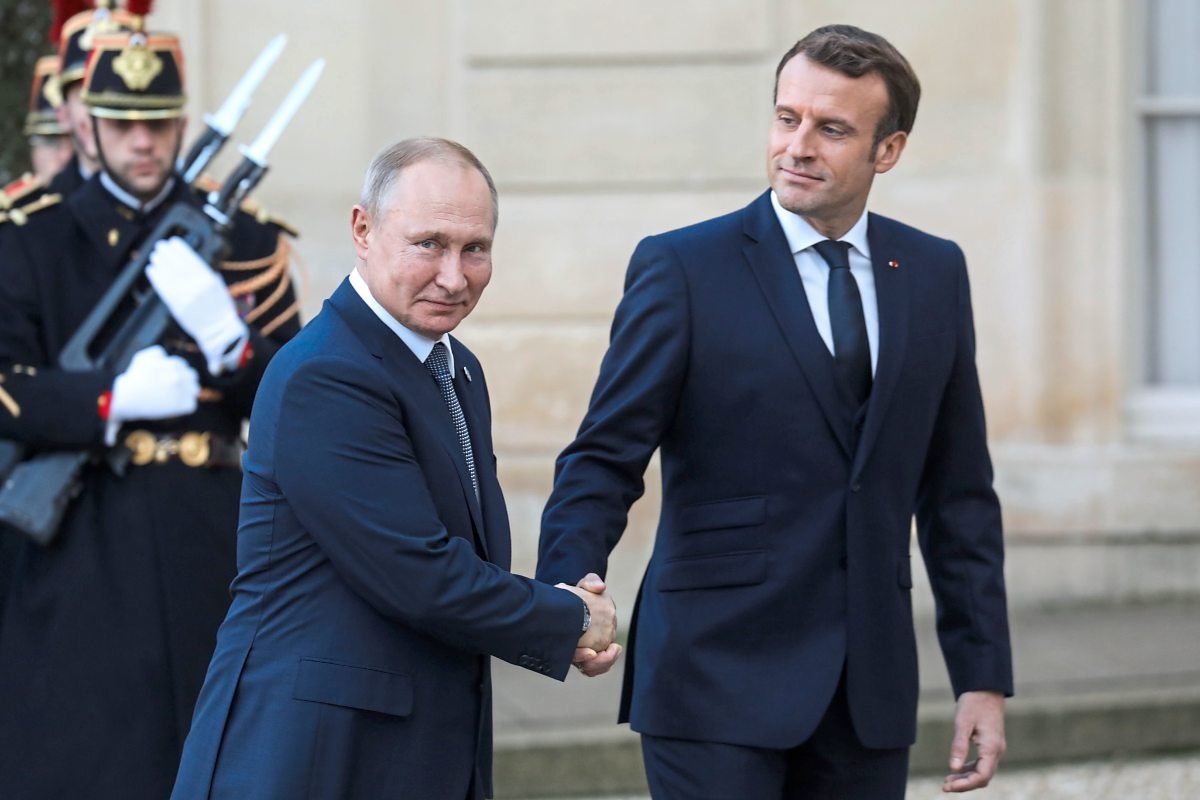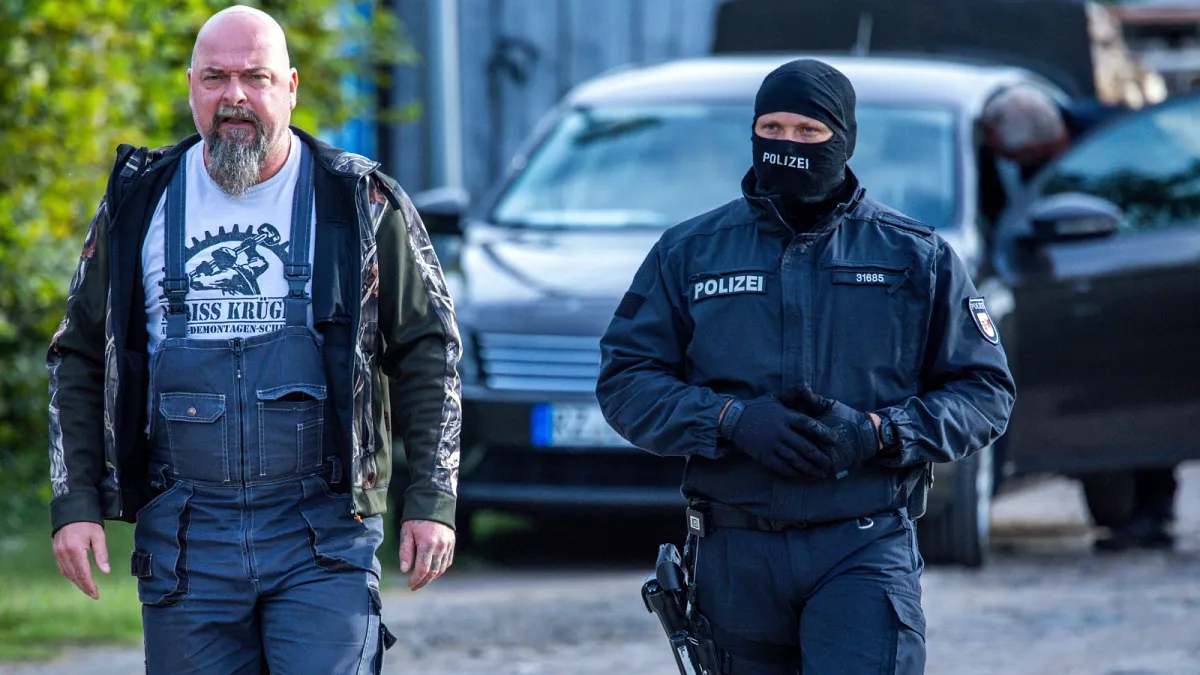
European Centre for Counterterrorism and Intelligence Studies, Germany & Netherlands – ECCI
By Jassim Mohamad, Researcher in international security and terrorism and head of the European Center – Bonn
The Franco-Russian rivalry, deeply rooted in history, has reached a new peak, with the two countries engaged in a complex geopolitical power game. From historical conflicts such as Napoleon’s invasion of Russia to contemporary events such as the Ukrainian crisis, this rivalry has shaped the political landscape in Europe and beyond.
The recent statements of French President Emmanuel Macron regarding the possible deployment of European forces in Ukraine underscore the urgency of the situation. However, the move risks escalating tensions with Russia, which could lead to another Franco-Russian war.
Outside Europe, Russia’s expanding influence in Africa, facilitated by the Wagner Group, poses a challenge to long-standing French dominance in the region. Recent developments, including Russia’s strategic moves in the Sahel, highlight the changing power dynamics between these two countries.[1]
Despite criticism, French President Emmanuel Macron stresses that he will not rule out the use of Western ground forces in Ukraine. Macron said in an interview with The Economist magazine published on May 2, 2024, “If the Russians are able to penetrate the front lines, and if there is a Ukrainian request, we must legitimately ask ourselves this question,” and he added that ruling this out means not drawing any lessons.
From the war of the past two years. It is wrong to rule out such an operation in principle, especially with the aim of deterring Russia. International security – France’s strategy and confronting collapse Sharp reactions – German Chancellor Schulz It seems that Macron cannot wait to repeat Napoleon’s mistakes, and Macron did not rule out deploying ground forces in Ukraine. Federal Chancellor Olaf Scholz (SPD) refused to send Western soldiers to Ukraine.
The different strategies of the two European leaders became clear. Now Macron has once again explained why he believes strategic ambiguity is necessary, asking: “If Russia wins in Ukraine, we will not have security in Europe.” Who can guarantee that Russia will stop there? He asked: “What security will be available to other neighboring countries, such as Moldova, Romania, Poland, Lithuania and many others?” He concluded by saying: “We should not rule anything out because our goal is for Russia to never win in Ukraine.”[2]
The great power rivalry between France and Russia constitutes a powerful security dynamic shaping the Sahara-Sahel region that has been shaped in the past decade by transnational security operations, i.e. the nexus between terrorism, migration and transnational crime. The confrontation between Paris and Moscow, which began at the end of the last decade, is largely a result of the weakness and inefficiency of French foreign policy in the region, which Russia is striving to exploit for its political and economic advantage. As for the hot arenas of this confrontation, they are Libya and Mali, where the French-Russian competition led to giving the conflict a global security character in both countries, shifting the regional balance of power in Libya, and exacerbating the existing security problems in Mali. In general, the Franco-Russian rivalry in the Sahara and Sahel region is a phenomenon of the coming era of multipolarity and the new push towards Africa.[3]
Accessing Africa’s significant natural resources and harnessing African economic growth and strengthening economies is important. The Russians have been building their influence for several years and are focusing on access to raw materials, providing support to governments there and trading weapons. [4]
Competition for supremacy in the European Union
Competition for supremacy in the European Union Over the last two years, Paris’s focus has gradually shifted towards Kiev and distancing itself from Moscow. Although the French, skilled in the art of diplomacy, were initially reluctant to end cooperation with the Russians, their main goal now is to strengthen cooperation with Ukraine and focus on developing European security.
The war on the eastern borders of the European Union and NATO, along with the emerging challenges in Africa, redefined French foreign policy. The competition for supremacy in the EU remains and French aid remains contested compared to German support.
Berlin has previously pledged to provide eight billion Euros to Ukraine during 2024, more than double the amount pledged by Paris. Germany is also committed to participating significantly in the reconstruction of Ukraine and providing further training to Ukrainian soldiers.
In addition, Taurus missiles are expected to be part of the military support, and aid provided by France has been overshadowed by aid provided by the United Kingdom and the United States.[5]
The severity of potential Russian threats is pushing Central European foreign policy elites to view the EU again as a defensive actor and, to some extent, even to European strategic autonomy.
The question now is whether Trump’s return to the White House might even be likely, especially in light of his recent comments about NATO and his implicit call for Russia to do “whatever the hell it wants” with European countries that “don’t pay.” Central Europe’s readiness for the idea of strategic autonomy is not as clear as France’s newfound willingness to build it in the face of Russia.
But both are moving in the same direction of strengthening Europe’s geopolitical power.[6]
Conclusiones
It seems that Macron seeks to be a statesman and European leader who restores the history of France and the character of Napoleon. The timing came after he announced his readiness to send ground forces to Ukraine at the French border.
The timing of Macron’s announcement may support the idea of the French president’s efforts to be a European leader. After playing the role of mediator and interlocutor with Russian President Putin, he turned to be the equal opponent of Putin and the Kremlin.
The Russian-French-European competition in Africa and perhaps in other regions could be one of the factors to support this hypothesis. French diplomacy and the military presence of French and European forces in the Sahel countries, especially in Mali and Niger, declined, resulting in the withdrawal of the Barkhane force, which opened the door to Russian expansion there.
Without a doubt, competition will increase between Moscow and Paris due to raw materials, wealth, and economic factors, in addition to protecting national and national interests from the threats of extremist groups there.
The idea of French geopolitical competition is not limited to Russia, although it is the most important, but also with the countries of Europe, the countries of the European Union, especially Germany.
Paris still views Berlin as the engine of the European Union’s economy and does not hesitate to express its fears of the increasing policies of defensive military power to Berlin. Some of Europe countries look at Germany in the past, the “Nazi” state that occupied the countries of Europe.
No matter how much France seeks to be a European power, it can never fill the void of NATO and American protection for European countries. France is experiencing many internal problems: political, security, economic, and no guarantee of Macron’s ability to continue this policy, which has begun to retreat internally in the face of the populist right in France.
It is expected that Macron will continue to raise these slogans despite the disagreements or European rejection, which considers sending French forces to Ukraine to mean “dragging” NATO and engaging it in a direct war with Russia.
Macron and other European leaders are working to solve their problems by using Ukraine as a political card more than defending Ukraine.
* Copyright reserved to the European Center for Counterterrorism and Intelligence Studies ECCI
Links
[1]Unveiling the Power Play: Exploring the Franco-Russian Rivalry
[2]„Napoleons Fehler wiederholen“: Macron nennt Gründe für Bodentruppen – und Moskau schäumt vor Wut
[3]Franco Russian Rival
[4] French-Russian Rivalry in Africa
[5 Total turnaround of France towards Ukraine
[6] France and Central Europe Are Converging on Security




